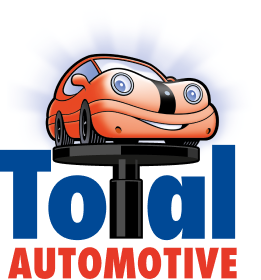Buffalo's: Selecting the Best Option for Automobile Safety

When it comes to car safety, few things are more crucial than making sure that your car's advanced safety systems are correctly calibrated. In the Buffalo area, where the severe winters and busy roads pose unique challenges for motorists, knowing how to find the best car safety system calibration company can make all the difference. Whether or not you’ve just experienced a crash, had your windshield replaced, or just want to ensure your vehicle is operating at its best, choosing the appropriate service is critical for your safety and the safety of other drivers on the road.
Now, how do you deal with the field of calibration services to make an educated decision? With multiple options at your disposal, it is crucial to know what to look for in a trustworthy ADAS calibration service. From acknowledging the importance of certification to spotting the red flags of subpar service, being well-informed is your greatest defense against possible hazards. Let’s explore the top qualities of reliable calibration companies in Buffalo, what to anticipate during the calibration process, and why accurate calibration of your vehicle's safety system can greatly impact accident prevention and overall driving security.
Deciding on the Right Calibration Provider
When selecting a car safety technology calibration company in the Buffalo area, it is crucial to prioritize dependability and expertise. Look for a company that has a solid standing in the community and positive customer feedback. This can provide an idea into their service quality and technical proficiency. A reliable calibration service should also be transparent about their processes and prepared to respond to any questions you may have regarding their methods and experience.
A further crucial factor is credentials. Ensure that the calibrating service employs qualified ADAS specialists who know the intricacies of modern driver-assistance systems. This is important not only for the protection of your vehicle but also for guaranteeing compliance with industry standards. A certified professional will understand how to use original equipment manufacturer approved tools correctly, which is critical for accurate calibration. Verifying whether the company follows the prescribed protocols for calibrating can assist you gauge their dedication to excellence.
Finally, consider the equipment and instruments used by the calibrating company. Advanced equipment plays a significant role in achieving precise calibration. Find out about the types of equipment they use and whether they have the capability for both static and dynamic adjustment methods. Vehicle sensor calibration Buffalo that invests in the newest technology is more apt to provide superior service, guaranteeing that your vehicle's safety technology function properly and well.
Grasping the Tuning Method
The adjustment process for ADAS (ADAS) is essential for guaranteeing the security aspects of a automobile are operating properly. It entails calibrating the sensors and optical devices that recognize hindrances, maintain lane position, and activate automatic braking systems. Calibration is commonly required post situations such as windshield changes, accidents, or variations in car height due to tire modifications. Understanding this procedure helps vehicle possessors understand the significance of choosing a skilled technician.
There are a pair of primary methods used for the calibration of ADAS: fixed and dynamic. Fixed calibration requires using particular equipment to configure the sensors in a regulated setting, often demanding precise placement and orientation. Adaptive adjustment, on the flip side, evaluates the system while the automobile is in operation, permitting the sensors to adapt to real-life scenarios. Either aim to ensure that the protection systems are accurately tuned to identify hazards and react correctly, thereby minimizing the chances of accidents.
It is important to recognize that accurate tuning is not a isolated task but an ongoing requirement. Aspects such as damage, modifications to the car structure, or even program revisions can affect the performance of these safety systems. Frequent checks and tuning guarantee that the vehicle’s protection features remain reliable and comply with regulatory standards. By grasping the calibration procedure, automobile possessors can more thoroughly assess their alternatives and promote necessary evaluations, fostering secure driving experiences.

The Importance of Proper Calibration
Accurate adjustment of your car’s safety systems is essential for maintaining that advanced driver-assistance systems (ADAS) perform effectively. When these systems, such as lane departure warnings or autonomous emergency braking, are improperly aligned, they can lead to inaccurate or delayed responses during critical driving situations. Total Automotive can significantly escalate the risk of collisions, negating the very purpose of these safety features. Therefore, recognizing the importance of calibration cannot be overstated, as it directly impacts your safety and that of other road users.
In addition to improving safety, proper calibration also helps preserve the reliability and performance of your vehicle's safety features. Many modern vehicles rely on a network of sensors and cameras to operate safely. If any of these components are incorrectly adjusted, it can cause system failures or unexpected behavior. Regular calibration checks ensure that all systems are operating correctly and can often stop larger repairs in the future. It is a proactive approach that saves vehicle owners both time and costs in the long run.
Finally, choosing a reputable calibration service is essential not only for your vehicle's safety but also for preserving the warranty and insurance requirements. Many manufacturers advise specific calibration procedures through authorized services. Using a company that follows these standards ensures that your vehicle remains compliant and that you maintain your protection under warranty and insurance policies. Thus, committing to proper calibration is not just an option but a requirement for any vehicle owner who cares about safety.
